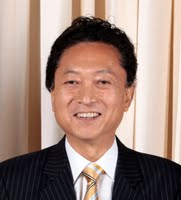TOKYO -- Japan's Prime Minister Yukio Hatoyama made a strange admission on his recent trip to Okinawa to try to persuade local authorities to support his plan to realign U.S. military forces on the island -- a plan that includes relocating the Marine Corps Air Station at Futenma to a less-populated part of the island.
Hatoyama admitted that until his trip, he did not see any reason why the U.S. Marines should remain on Okinawa. But, he added, he had gradually come to understand the deterrent value of the Marines, not to mention other American forces in Japan, "as he learned more and more about the issue."
Hatoyama's realization comes better late than never. But the candid admission tended to underscore the widespread feeling in Washington that Hatoyama and other members of his Democratic Party of Japan are extremely naïve -- if not downright untrustworthy -- about security matters and lukewarm about preserving the U.S.-Japan alliance. Along similar lines, Ichiro Ozawa -- until a year ago the leader of the DPJ and still the party's No. 2 as secretary-general -- made an offhand remark that Japan could depend for its defense on the U.S. Seventh Fleet alone. He did not elaborate, but it set off some alarm bells.

